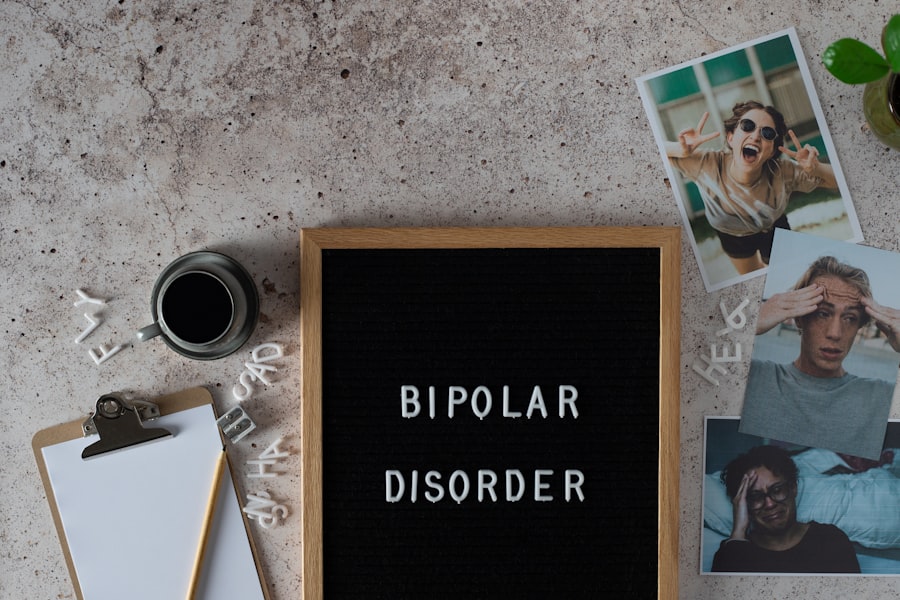Depersonalization Derealization Disorder (DPDR) is a complex and often misunderstood mental health condition that can leave individuals feeling detached from themselves and their surroundings. You may experience a sense of unreality, as if you are observing your life from a distance or as if the world around you is not quite real. This disconnection can be disorienting and frightening, leading to significant distress and impairment in daily functioning.
The symptoms of DPDR can manifest in various ways, including feelings of being an outside observer of your thoughts or body, emotional numbness, and a distorted perception of time and space. Understanding the underlying causes of DPDR is crucial for both individuals experiencing it and those seeking to support them. Often, this disorder is linked to traumatic experiences, extreme stress, or anxiety.
You might find that episodes of depersonalization or derealization can be triggered by overwhelming emotions or situations that feel beyond your control. While it is common for people to experience fleeting moments of depersonalization or derealization, when these feelings persist and interfere with your daily life, it may indicate a more serious condition that requires attention and care.
Key Takeaways
- Depersonalization Derealization Disorder is characterized by feeling detached from oneself and the world around them.
- Current treatment options for Depersonalization Derealization Disorder include therapy, medication, and alternative approaches.
- Therapy plays a crucial role in treating Depersonalization Derealization Disorder by helping individuals understand and manage their symptoms.
- Medications such as antidepressants and anti-anxiety drugs may be prescribed to help manage symptoms of Depersonalization Derealization Disorder.
- Alternative and complementary approaches, such as mindfulness and relaxation techniques, can also be beneficial in treating Depersonalization Derealization Disorder.
Current Treatment Options for Depersonalization Derealization Disorder
When it comes to treating Depersonalization Derealization Disorder, there is no one-size-fits-all approach. You may find that a combination of therapies and interventions works best for your unique situation. Currently, treatment options primarily focus on alleviating symptoms and addressing the underlying causes of the disorder.
Cognitive-behavioral therapy (CBT) is one of the most widely used therapeutic approaches, helping you to identify and challenge negative thought patterns that contribute to feelings of detachment. Through CBT, you can learn coping strategies to manage anxiety and stress, which may help reduce the frequency and intensity of depersonalization episodes. In addition to CBT, other therapeutic modalities such as mindfulness-based therapies and psychodynamic therapy may also be beneficial.
Mindfulness practices encourage you to stay present in the moment, fostering a greater connection to your thoughts and feelings. This can be particularly helpful in counteracting the feelings of disconnection associated with DPDR. Psychodynamic therapy, on the other hand, delves into the emotional conflicts and past experiences that may have contributed to your current state.
By exploring these deeper issues, you can gain insight into your condition and work towards healing.
The Role of Therapy in Treating Depersonalization Derealization Disorder

Therapy plays a pivotal role in the treatment of Depersonalization Derealization Disorder, providing a safe space for you to explore your thoughts and feelings without judgment. Engaging in therapy allows you to develop a better understanding of your experiences and how they relate to your past. A skilled therapist can guide you through the process of identifying triggers for your depersonalization or derealization episodes, helping you to create personalized coping strategies that empower you to regain control over your life.
Moreover, therapy can help you build resilience against future episodes. By learning how to manage stress and anxiety effectively, you can reduce the likelihood of experiencing depersonalization or derealization in response to challenging situations. The therapeutic relationship itself can also be a source of support and validation, reminding you that you are not alone in your struggles.
As you work through your feelings in therapy, you may find that your symptoms begin to diminish, allowing you to reconnect with yourself and the world around you.
Medications for Depersonalization Derealization Disorder
| Medication | Effectiveness | Side Effects |
|---|---|---|
| SSRIs (Selective Serotonin Reuptake Inhibitors) | Effective in reducing symptoms for some patients | Potential side effects include nausea, insomnia, and sexual dysfunction |
| SNRIs (Serotonin-Norepinephrine Reuptake Inhibitors) | May help with symptoms of depersonalization/derealization | Possible side effects include dizziness, dry mouth, and increased heart rate |
| Atypical Antipsychotics | Can be effective in managing symptoms | Potential side effects include weight gain, drowsiness, and increased risk of diabetes |
While therapy is often the cornerstone of treatment for Depersonalization Derealization Disorder, medications may also play a role in managing symptoms for some individuals. You might find that certain medications can help alleviate anxiety or depression that often accompanies DPDR. Selective serotonin reuptake inhibitors (SSRIs), for example, are commonly prescribed to help regulate mood and reduce anxiety levels.
These medications can create a more stable emotional environment, which may indirectly lessen the frequency of depersonalization episodes. However, it is essential to approach medication with caution and under the guidance of a qualified healthcare professional. Not all individuals with DPDR will respond positively to medication, and some may experience side effects that outweigh the benefits.
Additionally, medications are typically most effective when used in conjunction with therapy rather than as a standalone treatment. If you are considering medication as part of your treatment plan, it is crucial to have open discussions with your healthcare provider about your symptoms, concerns, and treatment goals.
Alternative and Complementary Approaches to Treating Depersonalization Derealization Disorder
In addition to traditional therapies and medications, many individuals seek alternative and complementary approaches to managing their Depersonalization Derealization Disorder symptoms. You might explore practices such as yoga, meditation, or acupuncture as potential ways to enhance your overall well-being. These approaches can promote relaxation and mindfulness, helping you cultivate a greater sense of connection to your body and mind.
Engaging in creative activities such as art or music therapy can also provide an outlet for expression and emotional processing. These forms of therapy allow you to explore your feelings in a non-verbal way, which can be particularly beneficial if you struggle to articulate your experiences verbally. Additionally, lifestyle changes such as regular exercise, a balanced diet, and adequate sleep can contribute positively to your mental health, potentially reducing the severity of DPDR symptoms.
Can Depersonalization Derealization Disorder Be Cured?

The question of whether Depersonalization Derealization Disorder can be cured is complex and varies from person to person. For some individuals, effective treatment can lead to significant improvements in symptoms and overall quality of life. You may find that with the right combination of therapy, medication, and self-care strategies, you can manage your symptoms effectively and regain a sense of normalcy in your life.
However, it is essential to recognize that DPDR may not be entirely “cured” for everyone. Some individuals may experience recurring episodes throughout their lives, particularly during times of stress or emotional upheaval. Instead of focusing solely on finding a cure, it may be more beneficial to concentrate on developing coping mechanisms that allow you to navigate these episodes when they arise.
Embracing a holistic approach that includes therapy, medication when necessary, and lifestyle changes can empower you to live a fulfilling life despite the challenges posed by DPDR.
Long-Term Outlook for Individuals with Depersonalization Derealization Disorder
The long-term outlook for individuals with Depersonalization Derealization Disorder varies widely based on several factors, including the severity of symptoms, the presence of co-occurring mental health conditions, and the effectiveness of treatment strategies employed. You may find that with consistent treatment and support, many individuals experience a gradual reduction in symptoms over time. Building resilience through therapy can equip you with tools to manage stressors more effectively, potentially leading to fewer episodes of depersonalization or derealization.
It is also important to maintain realistic expectations regarding recovery. While some individuals may achieve significant symptom relief, others may continue to experience fluctuations in their condition throughout their lives. Engaging in ongoing self-care practices and remaining connected with supportive communities can play a vital role in maintaining mental health over the long term.
By prioritizing your well-being and seeking help when needed, you can cultivate a more positive outlook on life despite the challenges posed by DPDR.
Future Research and Developments in the Treatment of Depersonalization Derealization Disorder
As awareness of Depersonalization Derealization Disorder continues to grow within the mental health community, ongoing research is essential for developing more effective treatment options. You may find hope in emerging studies exploring innovative therapeutic techniques and potential pharmacological interventions aimed at alleviating symptoms associated with DPDR. Researchers are increasingly investigating the neurobiological underpinnings of the disorder, which could lead to targeted treatments that address its root causes.
Additionally, advancements in technology are paving the way for new therapeutic modalities such as virtual reality exposure therapy (VRET). This approach allows individuals to confront their feelings of detachment in a controlled environment while receiving real-time support from therapists. As research progresses and new findings emerge, there is potential for more personalized treatment plans tailored specifically to individual needs.
By staying informed about developments in this field, you can remain proactive in seeking out effective strategies for managing your Depersonalization Derealization Disorder symptoms.
Depersonalization-derealization disorder (DPDR) is a complex mental health condition characterized by persistent feelings of detachment from one’s body or surroundings. While there is no definitive cure, various therapeutic approaches can help manage symptoms and improve quality of life. An insightful article on this topic can be found on Unplugged Psychology’s website, which delves into the nuances of DPDR and explores potential treatment options. For more information, you can read the article by visiting unpluggedpsych.
com/’>Unplugged Psychology.
LEARN MORE About Depersonalization & Derealization
FAQs
What is depersonalization derealization disorder (DDD)?
Depersonalization derealization disorder (DDD) is a mental health condition characterized by a persistent or recurring feeling of being detached from one’s own body (depersonalization) and/or feeling that the world around them is unreal or distorted (derealization).
What are the symptoms of depersonalization derealization disorder?
Symptoms of DDD may include feeling like an outside observer of one’s thoughts, feelings, and actions (depersonalization), feeling like the world is unreal or distorted (derealization), emotional numbness, and a sense of disconnection from oneself and the surroundings.
Can depersonalization derealization disorder be cured?
There is no specific cure for depersonalization derealization disorder, but it can be managed and treated with various therapeutic approaches, such as cognitive-behavioral therapy (CBT), medication, mindfulness-based interventions, and stress-reduction techniques.
What are the treatment options for depersonalization derealization disorder?
Treatment options for depersonalization derealization disorder may include therapy (such as CBT or psychodynamic therapy), medication (such as antidepressants or anti-anxiety medications), mindfulness-based interventions, stress-reduction techniques, and lifestyle changes.
Is it possible to recover from depersonalization derealization disorder?
Many individuals with depersonalization derealization disorder are able to experience significant improvement in their symptoms with appropriate treatment and support. While complete recovery may not be guaranteed, many people are able to manage their symptoms and lead fulfilling lives.




